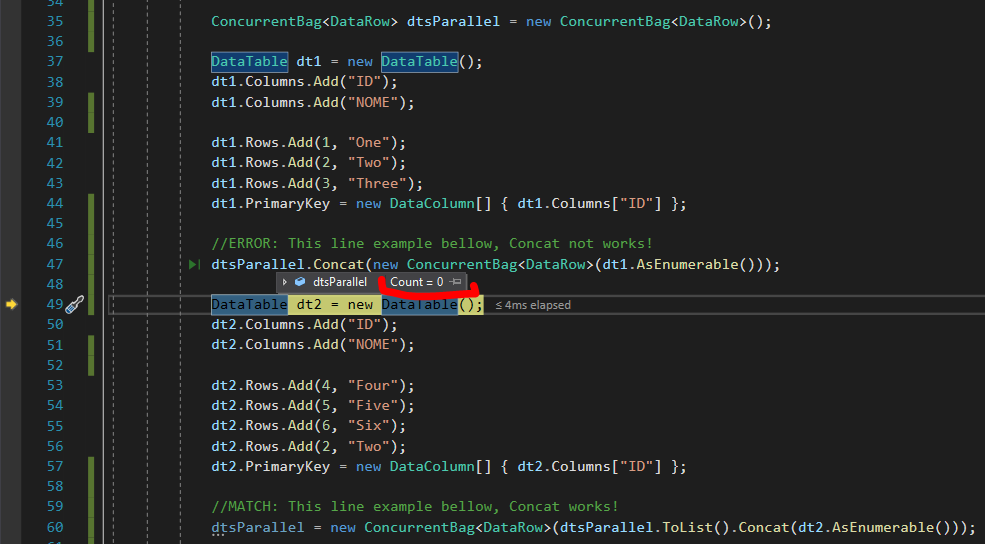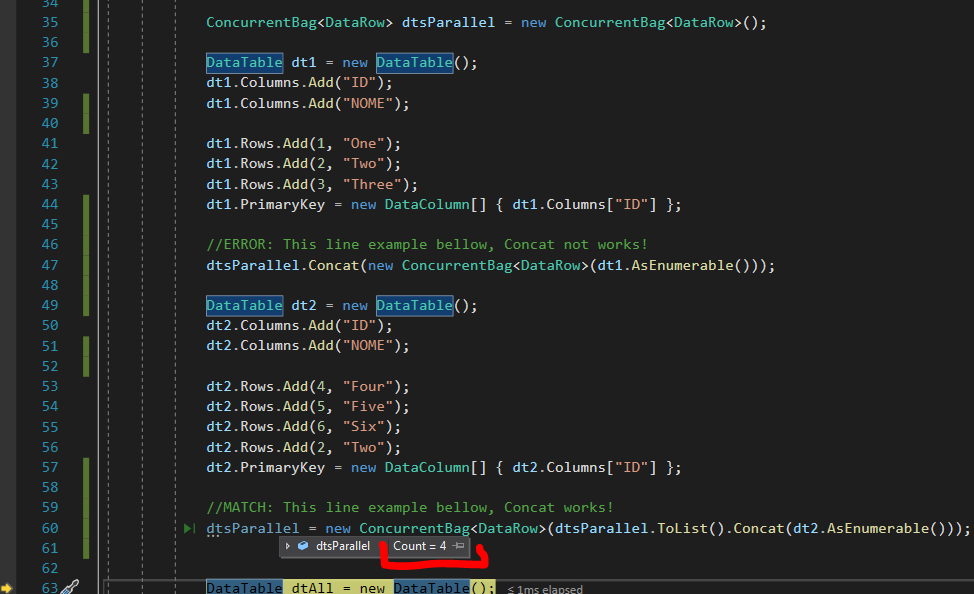Is there a way to add multiple items to ConcurrentBag all at once, instead of one at a time? I don't see an AddRange() method on ConcurrentBag, but there is a Concat(). However, that's not working for me:
ConcurrentBag<T> objectList = new ConcurrentBag<T>();
timeChunks.ForEach(timeChunk =>
{
List<T> newList = Foo.SomeMethod<T>(x => x.SomeReadTime > timeChunk.StartTime);
objectList.Concat<T>(newList);
});
This code used to be in a Parallel.ForEach(), but I changed it to the above so I could troubleshoot it. The variable newList indeed has objects, but after the objectList.Concat<> line, objectList always has 0 objects in it. Does Concat<> not work that way? Do I need to add items to ConcurrentBag one at a time, with the Add() method?


